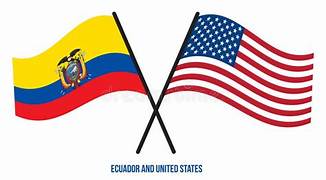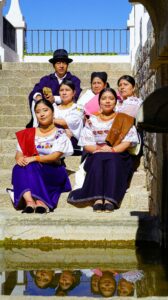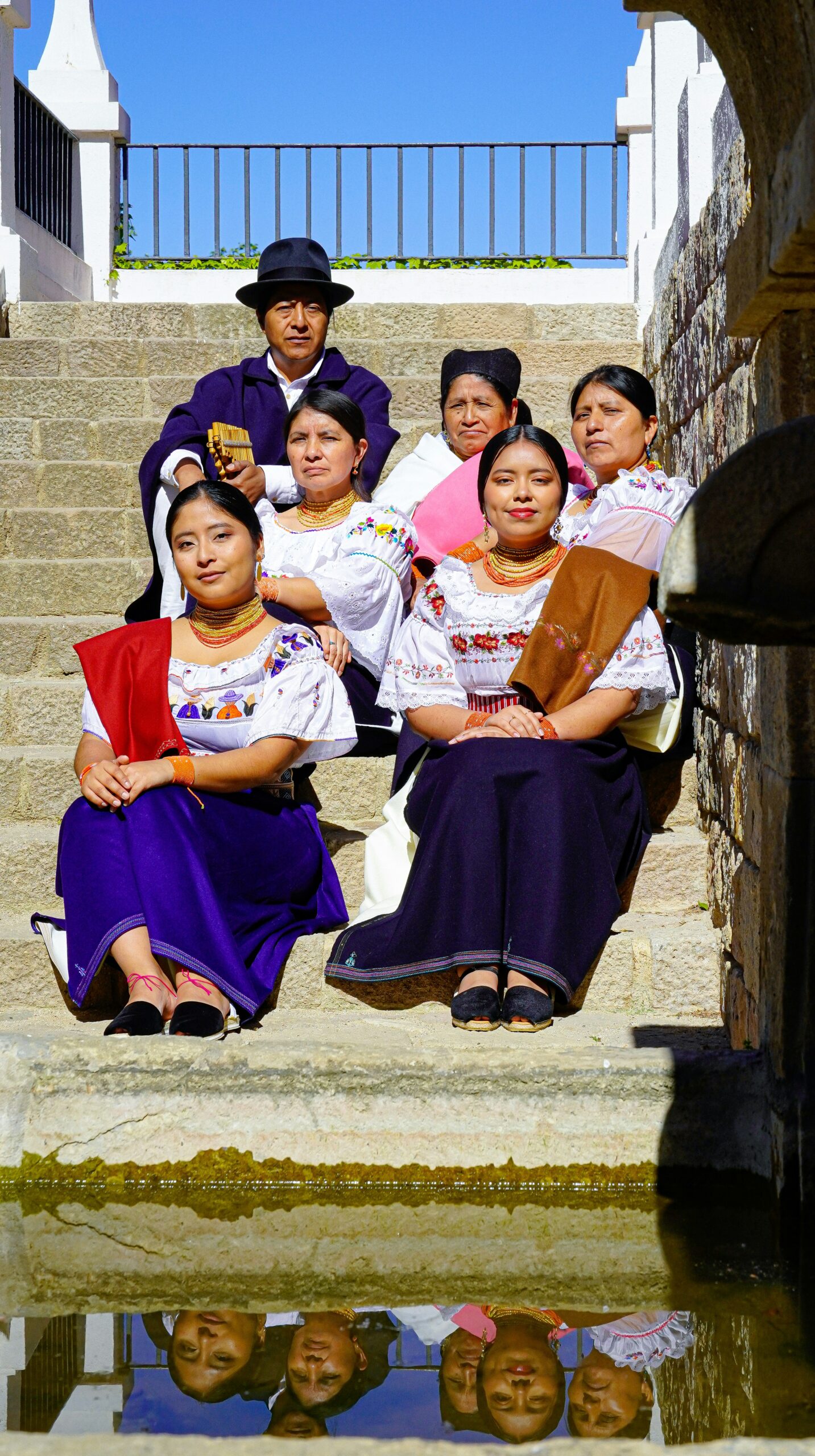By Ing. Teresa Ruiz Pedersen
 In the previous article “ How Did the Avalanche of Terrorist Groups, Drug Traffickers, and National and Foreign Mafias Begin in Ecuador?” (You can read it here: https://shorturl.at/vJbO1
In the previous article “ How Did the Avalanche of Terrorist Groups, Drug Traffickers, and National and Foreign Mafias Begin in Ecuador?” (You can read it here: https://shorturl.at/vJbO1
We learned how, during the government of the “Revolución Ciudadana and Alianza País,” reformed constitutional and immigration laws. Those reforms led to a physical, commercial, and legal collapse that affected the Republic of Ecuador. These changes turned Ecuador into one of the most dangerous countries in the region, primarily due to the establishment of organized crime, which stemmed from a constitutional and legal breakdown. These are the challenges faced by President Daniel Noboa and the Ecuadorian people so that such shameful events NEVER repeat themselves in the political history that has plunged the South American nation into mourning.
In this article, we will analyze how corruption was institutionalized in Ecuador in practice, allowing members of criminal organizations to enter through the borders indiscriminately (some even stay and other evil people moved to the south. The purpose of this article is to educate young Ecuadorians, Latin Americans, business people, and the general public in analyzing State policies that affect a family, a nation, or an entire region, so that they may exercise their right to vote consciously, legally, and in an orderly —while staying away from irregularities disguised as politics.
Indoctrination of Corruption Through the Law
Through the implementation of new laws and concepts which were strategically separated from values. Those new laws were gradually introduced, which years later would allow the establishment of micro drug trafficking enterprises, the entry of foreigners of questionable background, and the training of youth and their families in the business and commercialization of illegal drugs.
Ecuadorian Constitution, Year 2008
Permissiveness in Drug Use: Under the topic of health and with the goal of “promoting the comprehensive development of health personnel,” Article 364 was created, which states:
“Addictions are a public health problem. The State shall be responsible for developing coordinated programs of information, prevention, and control regarding the consumption of alcohol, tobacco, and narcotic and psychotropic substances; as well as providing treatment and rehabilitation to occasional, habitual, and problematic users. Under no circumstances shall their criminalization be permitted, nor shall their constitutional rights be violated. The State shall control and regulate alcohol and tobacco advertising.”
In other words, to create more jobs for doctors and nurses in the nation, power was centralized, strategically positioning the State as the caretaker of patients through the Ministry of Health, and as the sole controller—even of advertising.
Universal Citizenship: To regulate the principles of Ecuador’s international law and international relations, Article 416 of the Constitution was implemented. Items 6 and 7 highlight a new perspective on migration, emphasizing human rights concepts in the country.”
“6. It advocates the principle of universal citizenship, the free movement of all inhabitants of the planet, and the gradual end of the condition of being a foreigner as a transformative element of the unequal relationships between countries, especially North-South.”
“7. It demands respect for human rights, particularly the rights of migrants, and promotes their full exercise through compliance with the obligations assumed by signing international human rights instruments.”
These articles present the government and the country as bridges for the right to migrate without borders, allowing foreigners to enter based on the free will to live wherever they want; furthermore, placing the rights of migrants above all others—even those of nationals.
Years later, the Penal Code incorporated other articles that opened the door to the psychosocial permissiveness allowing citizens to carry drugs for personal use. Here is a sample of two articles included in the 2019 Penal Code:
Comprehensive Organic Penal Code of 2019
Authorization of Personal Drug Trafficking of Controlled Substances
Art. 220 – Illicit trafficking of controlled substances
Any person who directly or indirectly, without authorization or in violation of regulations:
Numeral 1. Traffics—by offering, storing, mediating, distributing, buying, selling, sending, transporting, importing, exporting, possessing with intent to market or distribute—narcotic and psychotropic substances or preparations containing them, in quantities as outlined in the relevant regulations, shall be punished as follows:
a) Minor scale: one to three years of imprisonment.
b) Medium scale: three to five years.
c) High scale: five to seven years.
d) Major scale: ten to thirteen years.
The scales are established by the Ministry of Health.
Numeral 2. Trafficking of chemical precursors or specific chemicals intended for illicit production of narcotic or psychotropic substances shall be punished with five to seven years of imprisonment.
If such substances are sold, distributed, or delivered to minors, the maximum sentence shall be increased by one-third.
Possession of drugs for personal use, within limits established by regulation, shall not be punishable; in cases of occasional, habitual, or problematic use, the State shall offer treatment and rehabilitation. Quantities set in thresholds or scales are only referential to determine trafficking or personal use.
Possession of pharmaceuticals containing cannabis or its derivatives for therapeutic, palliative, medicinal, or alternative medicine purposes shall not be punishable, provided a professional diagnosis proves the presence of illness.
In the case of trafficking multiple substances in a single act, one criminal proceeding shall be initiated for the substance with the highest penalty, and no accumulation of sentences shall occur.
However, in practice, what has happened is that children are sent by their parents carrying drug packets—given out for free the first time in schools to trigger addiction—then later sold to addicts. Because of the existence of threshold tables, micro-traffickers would rent or seize a house near the school to use children to sell and distribute drugs.
This situation led the country into an unsustainable criminal state, with a breaking point being the death of Ecuadorian citizen and presidential candidate Fernando Villavicencio, who had denounced corruption and was assassinated on August 9, 2023, while leaving a political rally. He was, quite literally, buried alive in a pickup truck. He entered without police protection, without armed officers, and a young Colombian shot him while alleged police officers closed the back door of the truck. Fernando Villavicencio died, and the shooter was taken to a judge instead of a hospital. He died without beside the judge. Days later, seven Colombians supposedly involved in the crime were arrested and later murdered in an Ecuadorian prison.
 All kinds of events set the country on fire. Following Mr. Villavicencio’s death, the country voted for Mr. Daniel Noboa. He is the son of Guayaquil businessman Álvaro Noboa, who was politically persecuted during the socialist government of the 21st-century “Ecuador chapter”. This decision opened the door to a new perspective, and Daniel Noboa presented a new strategy based on keeping the country away from evildoers. However, Ecuador has not been abandoned — the U.S. government has maintained bilateral cooperation with President Daniel Noboa’s administration, who was elected again for the next four years.”
All kinds of events set the country on fire. Following Mr. Villavicencio’s death, the country voted for Mr. Daniel Noboa. He is the son of Guayaquil businessman Álvaro Noboa, who was politically persecuted during the socialist government of the 21st-century “Ecuador chapter”. This decision opened the door to a new perspective, and Daniel Noboa presented a new strategy based on keeping the country away from evildoers. However, Ecuador has not been abandoned — the U.S. government has maintained bilateral cooperation with President Daniel Noboa’s administration, who was elected again for the next four years.”
“Today, Ecuadorians must reflect on the political results of this last election. There remain, within the country, at least 44% of voters who support the ideologies and inconsistencies that have kept the Ecuadorian people imprisoned for more than two decades. The key question to evaluate these events could be: Who are the 44% of voters who continue to support 21st Century Socialism in Ecuador? Who inside the country sponsors these kinds of constitutional violations?”
Those questions could be:
The Assembly members who legislate?The judges and lawyers who are part of the judicial system?
The ombudsmen created, among other things, to enforce the rights of unaccompanied migrant children entering the country?
The doctors or experts who unilaterally issue reports or charts to the highest bidder?
The employees inside the Ministery of Health, which allows the entry of medications banned in the U.S. due to their irreversible health effects?
The hospitals and private/public clinics interested in meeting monthly sales targets to bill the national government? And so on…
These are just a few examples of the enormous challenges the national government faces to eradicate the rampant corruption within Ecuadorian State institutions.
But if you, dear reader, need legal advice to emigrate or export your products to the United States legally and in an orderly way, contact us:
📩 Email: info@usiifs.com
📞 Phone: +1 502-495-8444 – +593 98-380-3826
🌍 Website: www.usiifs.com

